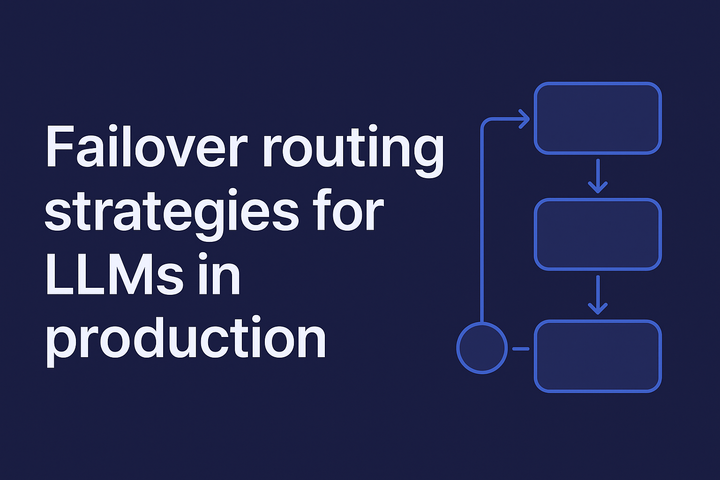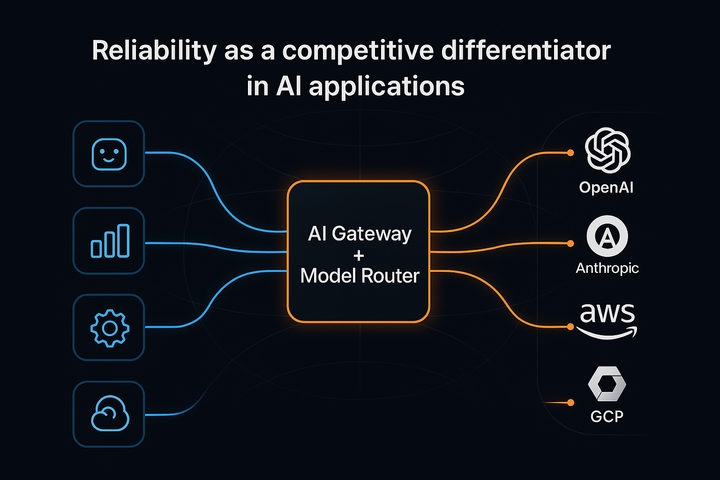Managing and deploying prompts at scale without breaking your pipeline
Learn how teams are scaling LLM prompt workflows with Portkey, moving from manual, spreadsheet-based processes to versioned, testable, and instantly deployable prompt infrastructure.
Prompts are a central part of your AI infra — no surprises there. And as you scale, your prompt library grows too.
But there’s a problem. For many teams, prompt management today is an operational mess. Prompts live in spreadsheets. Updates require developer handoffs. Deployments take days. There’s no version control, no testing pipeline, and no visibility into what’s working and what’s outdated.
One customer we spoke to runs AI-powered agents and workflows to process claims. They’ve rewritten prompts dozens of times as new edge cases emerge, but every update requires rerunning evals, verifying performance, and coordinating across PMs and engineers. Their question was simple: "What’s the Git or W&B equivalent for prompts?"
This post breaks down what good prompt management should look like and how teams are solving it today with Portkey.
The hidden cost of managing prompts manually
Prompt iteration is a product problem and a coordination problem. PMs want to experiment and ship quickly. Engineers want stability and traceability. But when prompts are managed in disconnected Google Sheets, Notion docs, or hardcoded in the backend, both sides end up blocked.

A typical flow today looks something like below:
- A PM makes changes in a shared doc and hands it off to engineering.
- The engineer translates it into code, runs manual tests or scripts to check performance.
- The update goes into a PR, which goes through review and CI/CD before it reaches production, sometimes days later.
- And if something breaks or underperforms? Rollback is manual. Logs are incomplete. Everyone scrambles.
There’s no versioning. No audit trail. No automated testing. And no clear owner of prompt quality.
This is exactly what’s leading to slower iteration, inconsistent behavior in production, and a complete lack of confidence in what’s live. For teams working with dozens or hundreds of prompts, this slows you down at the cost of becoming a liability.
What good prompt management should look like
If you’re deploying LLMs in production, prompt management deserves the same rigor as your codebase. Moving beyond ad hoc processes and treating prompts as first-class citizens in your stack is the best way out.
- Versioning built in: Every prompt change is tracked, so you know exactly what changed, when, and why.
- A central place to manage all versions: Every prompt is stored, tracked, and organized in one source of truth, no more scattered docs.
- Easy labeling and promotion: Tag prompt versions by use case, status (e.g. staging, production), or experiment and push to prod with one click. Solves for this -

- Model-aware testing: Quickly test prompts against multiple models, and deploy the best-performing pair together.
- Safe experimentation: PMs and non-engineering teams can test variations without waiting on dev cycles.
- Easy rollback: If a prompt underperforms in prod, you can revert with confidence, just like code.
- Staleness alerts: Get visibility into prompts that haven’t changed in a while and whether they still hold up.
How teams are solving this with Portkey
With Portkey, teams are no longer stuck in spreadsheets, dev handoffs, and CI/CD bottlenecks. They manage, test, and deploy prompts with the same confidence and speed as code.
Here’s how:
- Instant deployments: What used to take 2–3 days to reflect in production now takes less than an hour. That’s over 90% faster time-to-prod, with fewer engineering cycles.
- 1,000+ prompt templates, zero chaos: Teams manage large prompt libraries with structured versioning, metadata tags, and environments like dev, staging, and prod.
- Prompt Partials: Reuse prompt components like instructions, schemas, or examples across templates. Modularize your prompt stack and cut down duplication.
- Model + prompt orchestration: Easily test prompts across providers like OpenAI, Claude, or Mistral. Deploy the best-performing model-prompt pair with a single config change.
- Prompt Observability: Track usage, monitor latency and error rates, and analyze what prompts are working and which ones need a second look.
- Easy rollback: If something underperforms, roll back instantly.
- Prompts API: Cleanly separate prompt logic from your application code. Serve saved, optimized prompts through an API and iterate independently.
- Designed for experimentation: PMs and non-devs can run experiments, evaluate results, and push updates, while engineers stay focused on the core product.
- Integrated production controls: All updates are governed by built-in guardrails, rate limits, circuit breakers, and routing logic via the Portkey Gateway.
Instead of treating prompts like scattered config files, teams on Portkey treat them like deployable, testable, observable components of their AI stack.
You can’t scale agents without prompt infrastructure
If you're serious about deploying AI systems in production, whether it’s agents, copilots, or LLM-powered workflows, then prompt infrastructure is a must.
The more prompts you manage, the more experiments you run, and the more models you evaluate, the harder it becomes to rely on spreadsheets, manual updates, or buried config files. At some point, prompt management needs to graduate from a side process to a core part of your stack, versioned, observable, and production-ready.
With Portkey, teams are doing just that. They’ve cut prompt deployment time by over 90%, rolled out updates with zero dev involvement, and scaled their prompt workflows without losing control.
Ready to move fast without breaking things? Try it yourself or book a demo with us today!



